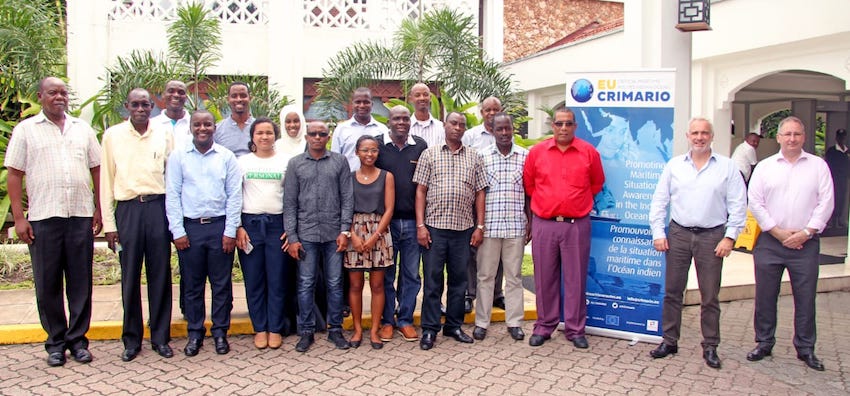The development of the blue economy requires the control of crimes and incidents at sea. As a response, the EU CRIMARIO project advocates regional cooperation and interagency coordination, which are illustrated today in Mombasa by the two-weeks training session dedicated to maritime data analysis for 15 participants of Kenya, Madagascar and Seychelles (15-26 October, Sarova Whitesands hotel).
Kenya is welcoming the complete training programme on maritime data analysis in 2018. After the data visualisation cycle (3 sessions and 6 certified trainers), the current cycle is dedicated to maritime analysis. This second session was attended by the 15 participants who successfully completed the test following the first session. They learned the alert warning process, and basics of maritime intelligence; they deepened their knowledge in law of the sea, oil and gas offshore installations, and they practiced with simulation exercises.
The successful ones will attend the next train the trainer session organized by the first quarter 2019 in Mombasa, to develop training skills in maritime analysis.
Kenya attendees belong to the main agencies involved in the surveillance of maritime domain: KPA, Fisheries Service, KMA (Kenya Maritime Authority), Navy, Revenue Authority and Ministry of Interior. In addition two participants from Madagascar working at RMIFC (Regional Maritime Information Fusion Centre), and Secretary of State at Sea and one is from Seychelles.
In Kenya, CRIMARIO collaborates closely with Kenya Port Authority (KPA), the national focal point of the project. A training program has been established, focusing on maritime data processing and the training of trainers. IORIS the web platform for information sharing and incident management at sea is already running in the Joint Operations Centre. The strengthening of the AIS national network is under implementation.
Read the articles published by Kenyan media: the Star and Capital Business.

